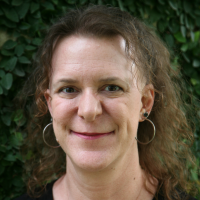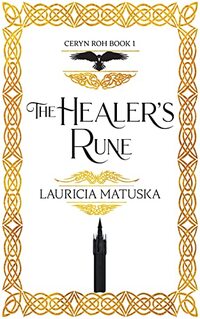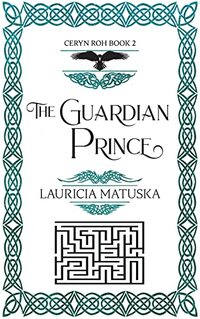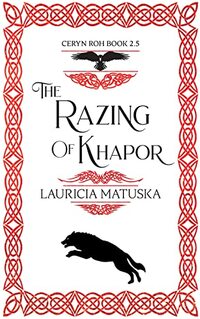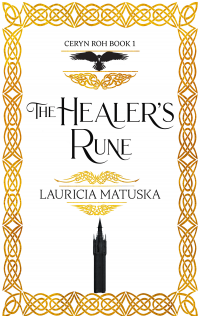Lauricia Matuska Interview Published on: 20, Feb 2017
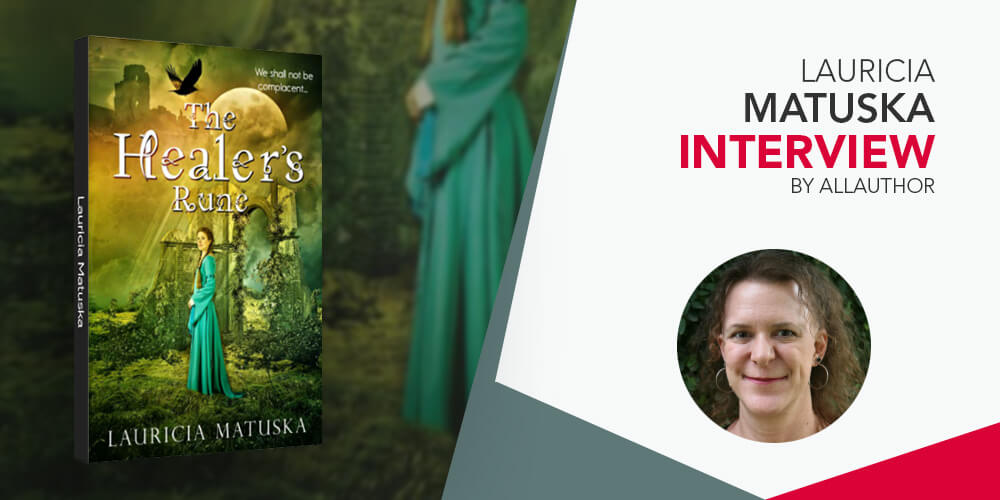 The book cover of ‘The Healer’s Rune’ is fashionably exquisite! Do you believe that the book cover plays a crucial role?
The book cover of ‘The Healer’s Rune’ is fashionably exquisite! Do you believe that the book cover plays a crucial role?
Absolutely! There have actually been a few times when I’ve been at a book signing where someone has walked past my book table, then done a double take and come back. When I ask why, I’ve been told that my book’s cover was so gorgeous that it caught their attention and made them interested in finding out what the book is about. Also, as much as we say not to judge a book by its cover, I always do, and I have many friends who do, as well. The more intriguing a cover, the more likely we are to pick up a book and see what it’s about. If that’s true for us, then why not for other book lovers, as well?
Is the protagonist Sabine a reflection of your real life personality in some ways?I don’t think it’s possible for a character to not be a reflection of some part of the author. That doesn’t mean they are biographical portraits, necessarily, but it does mean that each character will reflect something of the author. Personally, my characters are a combination of who I am, who I don’t want to be, and my desire to do something original in a well-explored genre. If there’s anything noble in a character, it’s likely a trait I wish I had. Anything ignoble is likely a trait I wish I didn’t have, or who I am afraid I might become if I were to give in to my darker desires. That said, there’s also a lot of randomly matched character traits that get thrown in. For Sabine, the traits we share are a tendency to speak our minds before thinking, and to be more snarky in our thoughts than in our words. I would be pleased if I were as courageous as she is, too.
Which writers inspired you most in your childhood?My love of literature and the fantasy genre began in the fifth grade, when I found C. S. Lewis’ The Lion, the Witch, and the Wardrobe. Next came J. R. R. Tolkien’s The Hobbit, followed by Madeline L’Engle’s A Wrinkle in Time. I have read voraciously all my life, but these three authors were the most formative in my early adolescence. During my later teens I was most affected by Tad Williams’ Memory, Sorrow, and Thorn series and Neil Gaiman’s Neverwhere and Stardust novels.
How many hours a day do you write?I tend to max out in two hour spurts, so a good Monday-Friday workday for me would be two complete hours. An ideal Saturday would be three or four two-hour sessions, and Sunday I’m lucky if I can squeeze in one. All of that is in a perfect world, however. Real life tends to be a grab-and-go collection of however much I can squeeze in on any given day.
How important is it for fantasy writers to flesh out the details of their setting to a substantial extent?As with any genre, developing the setting in relevant detail is crucial. Author styles vary, so the amount of detail any author believes should be included will always be subjective, but it is imperative that the detail is relevant, serving a purpose in the story. The primary difference between fantasy/science fiction and other genres is not how much detail to include, but how much of detail authors have to make up and remember, especially when writing a series. I would be lost without the maps and charts of setting details that I create, and I pour a significant amount of research into biomes on Earth so that I can represent the biomes in my worlds with some amount of believability. Even so, if I create a setting full of superfluous detail that doesn’t advance the story, then I’m doing more harm that good.
Do you consciously premeditate the connections between all books of a series or do you tend to lean towards improvisation more?Both? When I began writing The Healer’s Rune, I did not intend for it to be a series. In the first two or three drafts is was a standalone novel. The plot just kept growing, however, and more things needed to happen than could be contained in one book, so I took the risk of spreading it out across a trilogy. For that reason, and to provide continuity in the story, there are some very consciously developed connections between the three books. The beautiful thing about writing, though, is that things don’t always go as you planned. As the story develops, plans change. What you thought you were going to write sometimes gets cut out, and sometimes things you never dreamed of find their way in. When that happens, and elements you did not think were going to work together suddenly connect in a deep way, it’s amazing. It boggles my mind every time.
What is the title of your next book?Right now it is The Guardian Prince. I say that very hesitantly, though, because my publisher could change it, as he with the first book. At first I resisted his suggestion to change it, but his reasoning was solid, so I went with it. I’m glad I did, so if he recommends I change the working title of The Guardian Prince, then I’m going to do just that.
Do you have a specific target group that you aim to strike a chord with?People like me who love the fantasy genre, who love to wander in other worlds, and who admire the sense of wonder a good fantasy story can instill. The young-at-heart who resonate with the quote by G. K. Chesterton that says “Fairy tales do not tell children the dragons exist. Children already know that dragons exist. Fairy tales tell children the dragons can be killed.” These are the readers I write for.
To what extent do fantasy novels have to be believable so that readers don’t dismiss them as being extremely implausible?We have to be consistent in our world building. We have the unique opportunity to create any type of world we want, to lace it through with all sorts of wonders and uncommon occurrences, but if we are not consistent with what we already know in the physical world, we could lose credibility. This doesn’t mean we can’t create worlds where the science is unlike any we’ve ever known, but it does mean we need to use the rules of science that we do know to explain how and why things are different in our worlds. It may seem out-of-place for a fantasy author to discuss the science of world building, but even magic should have rules. If I know, for example, how the Earth’s moon affects the ocean’s tides, then I can more easily explain, and help readers believe, how and why the phases of the moon (or moons) in my story world influence the power and timing of magic use in that particular world. If fantasy authors use the science, or interpersonal relations, or cultural traditions, or what-have-you of the world readers know to explain the world readers don’t know, it gives more plausibility to our creation and helps readers willingly suspend their disbelief.
Is it true that fantasy writers are more prone to experience writer’s block?To be honest, this is the first time I’ve heard that. I can see why it might be that case, though, because it’s easy to get trapped in a cycle of trying to do something new only to realize it’s already been done. It’s the worst feeling in the world to be three years into a work in progress that you thought was a totally original idea only to see a story with that same premise published before you could even pitch your idea to an editor. It happens more often than writers care to admit, and it can quickly lead to being blocked. For me, writer’s block happens when I get lazy. If I’ve missed or just plain skipped out on my writing time for a while, then it’s hard to get back into the project, and I find myself complaining of being stuck. However, the more faithful I am to the project I’m working on and to writing every day in general, the less I experience writer’s block.
How much importance do you attribute to naming your characters and locations?On a scale of one to ten, I’d have to say this issue weighs in at about a five. I spend a lot of time brainstorming names that are original and other-worldly but not hard to pronounce, and that do not look like a lot of letters just strewn together. I even tend to leave characters unnamed until I find the name that fits them best. However, as of yet my names don’t carry any symbolic resonance or meaning. At least, not at a level that is conscious to me.
How have the reviews for ‘The Healer’s Rune’ been so far?Absolutely amazing! I hoped but never dreamed something I created would be received so well. I am incredibly thankful for everyone who takes the time to write a review, and I am honored that so many people have resonated with the story. It seems a very auspicious beginning.
What is your definition of literary success?That changes as my writing and my career grow. My first milestone was to be traditionally published. I chose not to self-publish because I wanted the affirmation of a team of professionals who believed in the story enough to want to publish it. When that became a reality, I looked to the book’s sales. According to Tim Grahl and Stephen Piersanti (in two different sources) most books only sell 250 copies in their first year. Exceeding that is the next goal. Then I would love for my books to have sustainability. If they are still read and loved enough to be recommended to others, to be passed on for years, then that will be a good measure of success.
How do you manage transiting across the real world and the realm of fantasy?Some people would argue that I don’t! In all honesty, I believe my love of the fantasy genre helps me live happily in the real world. It has instilled in me the ability to believe in the potential of mankind without reacting naively to the darkness man is capable of; the desire to overcome evil with good and the belief that it is possible to do so; and a willingness to speculate about the impossible. All of these attributes help me navigate the real world. I genuinely believe I am a better person for being a fan of the fantasy genre.
Do you enjoy your family’s support on your writing career?Very much so. When I was twelve, there used to be a Saturday cartoon program that would turn books into cartoon movies. I was so disappointed with one I had just watched that I went into the kitchen to complain to my mother, who responded by challenging me to write a story that I would enjoy. From that moment I was hooked. Well-meaning adults (never my mother) who heard that I wanted to be a professional writer would ask me how I planned to eat, since writing is rarely lucrative, but no one ever told me I couldn’t do it. Part of my husband’s wedding gift to me was a writing desk, and part of the dedication of The Healer’s Rune is a thank you to my husband and my sons for giving being so encouraging. Even today my mother, my spouse, and my children are my biggest supporters.
Finally, how has AllAuthor helped you with the promotion of your book? Would you recommend this platform for your author friends?To be honest, I was a little skeptical at first. So many of the internet marketing venues that are available work well for a few days, then fizzle out. However, I have been very impressed with the consistency of AllAuthor’s services and the amount of effort that is put into promoting my book for such a reasonable price. The quality of this program is very much worth the cost, and I would (and do) recommend it to other authors I think are interested. I also recommend it to readers who like reading community platforms.
Share Lauricia Matuska's interview
Lauricia Matuska, member of our Pro-Author community, feels honored that so many people have resonated with her fantasy novel, 'The Healer’s Rune'. She regards being traditionally published as her first milestone. A huge fan of the fantasy genre since the fifth grade, Lauricia disclosed that C.S. Lewis, J.R.R. Tolkien and Madeline L’Engle were the most formative inspirations in her early adolescence. Her characters and stories spring from her desire to do something original in a well-explored genre. Lauricia believes in representing her fantasy stories with some amount of believability, because, in her own words, even magic should have rules. She says her mother, her spouse, and her children are her biggest supporters in her writing ventures. The working title of her next publication is 'The Guardian Prince', although, according to her, it may change if her publisher wills so. Lauricia shares that she is very impressed with the consistency of AllAuthor’s services, and recommends it to other authors and readers.
